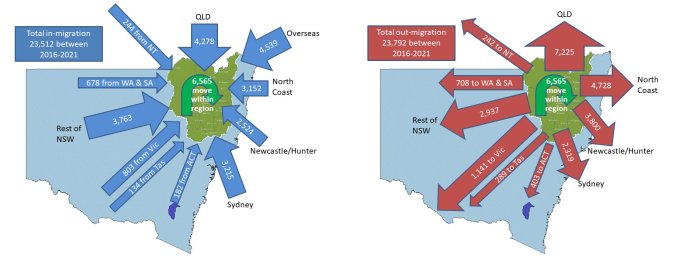-
Featured Items
-
Featured Resources
 Funding & Grants
Don't miss out on funding opportunities. Stay informed with our up to date online listings and email notifications.
Read More
Funding & Grants
Don't miss out on funding opportunities. Stay informed with our up to date online listings and email notifications.
Read More
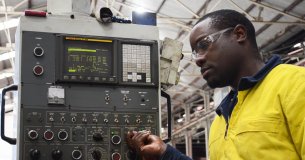 Skilled Migration
Our services help both applicants and employers, to learn more, develop plans, submit applications, and settle in.
Read More
Skilled Migration
Our services help both applicants and employers, to learn more, develop plans, submit applications, and settle in.
Read More
 Research and Analysis
Good research and analysis makes the case. How can our resources and services help your project or application?
Read More
Research and Analysis
Good research and analysis makes the case. How can our resources and services help your project or application?
Read More
 Information & Data Resources
With resources like REMPLAN, Regional Knowledge Base, and decades of data, discover how we can help your project.
Read More
Information & Data Resources
With resources like REMPLAN, Regional Knowledge Base, and decades of data, discover how we can help your project.
Read More
-
Stay InformedSubscribe to one or more of our regular email subscriptions, to be kept up to date on news and funding opportunities for the region
-
-
Our Region
- Our Region
- Regional Plan
- Regional Data
- Current Regional Issues
- Population Migration Analysis for 2016-21
- Job Vacancies Continue at All-Time High
- National Debt - What it Means for Our Economy?
- The True Value of Home Solar
- The Economic Impacts of Local Government Amalgamations
- State of the Regions Report 2014-15
- Antifragility - A different take on regional economic development
- Biohubs - Collaborative Waste Management
- Attracting New Residents
- Socio-Economic Impacts of the Murray Darling Basin Plan
- Murray Darling Basin Water Recovery
- Growing Businesses
- The Northern Inland Economy
- Geographical Overview
- Major Industry Sections
- Our Services
- Grants and Funding
-
Skilled Migration
- Skilled Migration
- Skilled Employer Sponsored Regional Visa
- Skilled Work Regional Visa (subclass 491)
- Temporary Seasonal Workers
- Designated Area Migration Agreement (DAMA)
- Helpful Information for Visa Holders
- Information for Employers
- Case Studies
- Payment Details
- Advice & Further Information
- Contact Details
- News & Events
-
Our Projects
- Our Projects
- Current Projects
- Skilled Migration
- Wool Works - Wool Training Schools
- Metal Works - Welding and Fabrication Schools
- Come On Inland
- Stories of Resilience
- Alt Brothers Beekeeping - Glen Innes
- Carelle's Toy Store - Glen Innes
- Greenhill Orchards - Arding
- Gwydir Meats - Warialda
- Kaputar Motors - Narrabri
- Moonbi General Store - Moonbi
- Sandstock - Tingha
- Sherelle Fashions - Tenterfield
- Sleepy Merino - Inverell
- Tenterfield Chamber of Toursim, Industry and Business - Tenterfeild
- The Welders Dog - Armidale
- Walcha Veterinary Supplies - Walcha
- AGCAP - Agribusiness Careers & Professions
- Northern Inland Regional Investment Profile
- Past Projects
- Digital Economy Strategy
- Business Growth Project
- Go Digital
- How to Start an Online Business
- Create Your Website Using Squarespace
- How to Edit Your Squarespace Site - Part 1
- How to Edit Your Squarespace Site Part 2
- Add a Shop to Your Squarespace Site
- Start a Blog and Find out What Customers are Searching
- 14 Tips For a Better Blog Post
- Which Social Media Platforms are Best for Your Business
- How to Use Facebook Effectively For Your Business – Part 1
- How to Use Facebook Effectively For Your Business – Part 2
- Instagram Tips for Business
- Catching Up, More Instagram & Dealing with Haters
- Getting Started with Twitter for Business
- Social Media Scheduling Tools
- How to Start an Etsy Shop – Part 1 – Research
- How to Start an Etsy Shop – Part 2 – Signup
- Online Security for Your Business
- Product Photography and Website Images: Your Guide
- 5 Tips to Improve your Productivity in your Business
- Best Online Business Resources
- How to Improve Your Communication Skills and Win More Clients
- NBN Coordinator
- Putting Power Back in the Regions
- Road Freight Study
- Town Audit Benchmarks
- Food and Wine
- Youth Survey
- Digital TV Switchover Assistance
- Northern Inland Transport Guide
- Live.Train.Work
- Northern Inland Innovation Awards
- Northern Inland Innovation Awards - 2017
- Northern Inland Innovation Awards - 2016
- Northern Inland Innovation Awards - 2015
- Northern Inland Innovation Awards - 2014
- Northern Inland Innovation Awards - 2013
- Northern Inland Innovation Awards - 2012
- Norther Inland Innovation Awards - 2011
- Prime Super Northern Inland Innovation Awards - 2010
- Prime Super Northern Inland Innovation Awards - 2009
- Northern Inland Innovation Awards - 2007
- Northern Lights Project
- NBN Smart Home
- Murray Darling Basin
- Moree Plains Business Workshops
- Namoi Investment Prospectus
- Industrial Land
- Bioenergy and Local Electricity Retailing
- Northern Inland Business Energy Assessment
- Skills for the Future
- Impacts of COVID-19 on Businesses
- Past Projects of NIRDB
- Aboriginal Employment and Enterprise in the Gunnedah Region
- Art as an Industry
- Aviation Survey
- Farm Forestry - Northern Inland Forestry Investment Group
- New England North West Film Strategy
- Northern Inland Excellence in Business Awards
- Food and Wine 2003 - 2008
- Prime Super Northern Inland Innovation Awards 2009
- Regional Business Networking Program
- Regional Leadership Course 2008
- Viticulture Strategy 2002-2003
- About Us
- Contact Us
- Other Resources
- Privacy and Legal
- Search
- News & EventsNews & Events
- NewslettersNewsletters
- General Newsletter - 13th of December 2022General Newsletter -…
Back to Newsletters
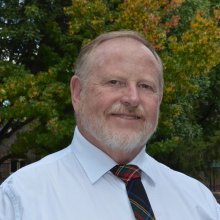
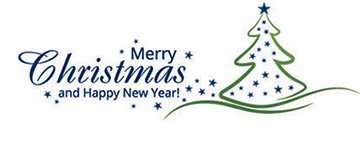
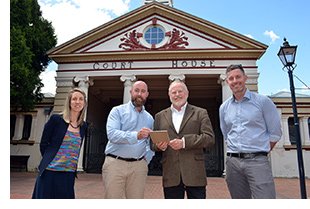
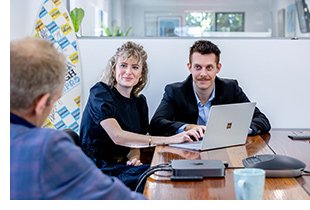
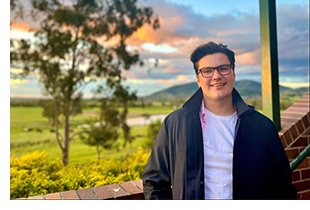
General Newsletter - 13th of December 2022
Tuesday 13th of December 2022
In this Issue
- Welcome from the Chair
- Office Closure Dates
- Skilled Migration Session a Success
- In and Out Migration Locations Highlighted in Census Data
- New Tool Connects Business and Research Organisations
- Youth Share Their Stories of Life in Regional and Rural Areas
- Featured Grants and Funding Opportunities
Welcome from the Chair

Dear Northern Inlanders,
It’s hard to fathom that it has been another year already, and way too quickly, we are about to say goodbye to 2022, which for many is a positive after some tough times.
Thanks to the employers and migrants that attended our skilled migration session last week. It was brilliant to have representatives from the NSW Government and the Migration Institute of Australia available to explain the range of options and answer questions directly. The day was very well received.
The analysis completed by our Senior Economist, David Thompson, on the sources of in and out-migration over the last five years provides interesting insight. The numbers highlight the importance of people arriving from overseas as our largest source of in-migration. But, unfortunately, in contrast to the five years to 2016, the last five years have seen a net out-migration for our region. So it is critical we understand where Northern Inland residents are moving to and where new residents are moving from, and take this into account in our strategic planning.
Part of looking to the future is hearing the voices of our youth. Congratulations to local Heywire winner Jack, who has shared his story as an advocate for understanding the needs of queer young people. The Heywire program provides a channel for our youth’s stories each year and can be a great source of ideas and perspectives. This year their stories featured their strength, perseverance and optimism and emphasised the importance of finding common ground and coming together in our communities.
On behalf of the Committee and Staff, I wish you all a wonderful Christmas. May yours be happy and shared with loved ones. We look forward to working with you in 2023.
Regards,
Russell Stewart
Chair
Office Closure Dates

Our office will be closed for the Christmas and New Year period from Wednesday the 21st of December, through to Monday the 9th of January 2023. Our staff will attend to any emails and phone messages upon their return.
RDANI Committee and Staff wish everyone a safe and happy break as 2022 comes to a close, and we look forward to working together in 2023 to help the Northern Inland region grow and prosper.
Skilled Migration Session a Success

We were pleased to host a skilled migration session for employers and migrants last week in partnership with the NSW Government. With around 50 attendees in person and online, it was a great opportunity to learn more about the benefits and opportunities of the available visa programs.
Skilled migration has never been more critical for our region. Unfortunately, some businesses barely have the staff to function, let alone grow. So, it was great timing that employers and skilled migrants were able to attend this free information session.
Presenting at the information session were representatives of RDANI; Local Member for the Northern Tablelands, Adam Marshall; Zane Rebronja, a Director with the NSW Department of Enterprise, Investment and Trade; and Jonathan Granger from the Migration Institute of Australia (representing migration agents).
RDANI has been involved in bringing skilled migrants to our region for many years, processing over 300 regional visa applications per year recently. Our expertise, settlement support and information resources are widely respected. However, we really value having officials from the Australian and State Governments come here to discuss regional visa programs and answer questions directly.
Businesses seeking to fill vacant positions are encouraged to utilise our free Facebook-based Northern Inland Skilled Migration Jobs Board. Posting information about your business and the positions you have available is free of charge. It allows you to connect with skilled migrants already in our region or in the process of moving here. Employing a 491 Visa holder is simple, and there is no additional paperwork or requirements. Further information about employing a 491 visa holder is available on our website.
In and Out Migration Locations Highlighted in Census Data
Population is an important driver of the Northern Inland economy and our capacity to attract government services such as hospitals, doctors and teachers as well as infrastructure like road and community amenities funding. Population is heavily influenced by in and out migration to and from our region.
The latest ABS Census data allows an analysis of migration patterns in the region by examining where people lived at the time of the last Census (2016) and where they lived at the 2021 Census as shown below.
Northern Inland In and Out Migration in 2021
|
23,512 people moved to the Northern Inland region between 2016 and 2021, while 23,792 moved out of the region. That results in a net out-migration of 280 people. In part, this is likely due to the Covid pandemic and people relocating to find work. Note that between 2011 and 2016, there was a net in-migration of people to the region with a gain of 1,541 new residents, the largest number coming from Queensland, the rest of NSW and from overseas. The largest source of new residents in 2021 was from overseas, many likely to have come to the region via skilled migrant work programs that RDA NI manage and refugee resettlement programs. This is closely followed by arrivals from Queensland and then the rest of NSW. Sydney and the North Coast of NSW are also important sources of new residents. Queensland was by far the largest destination for people leaving the region followed by the North Coast of NSW and the rest of NSW. 6,565 people moved between local government areas within the Northern Inland region. Whilst Census data should always be taken with a grain of salt, a key conclusion from this data is that our Northern Inland region is not growing in terms of both net migration and population, making it more difficult for businesses to find employees and for our communities to attract investment in public services and infrastructure. Actions are needed to address this issue. |
New Tool Connects Business and Research Organisations

The CSIRO has launched a new tool to connect businesses with the research sector. The Collaboration Readiness Levels (CRL) tool helps small to medium-sized businesses (SMEs) determine the best way for them to engage and collaborate with publicly funded research organisations
“Our research found when SMEs collaborate with universities or research organisations in Australia, they have higher levels of innovation, are better able to deal with uncertainty and are more profitable," said CSIRO SME Connect Deputy Director, George Feast. “This novel tool is backed by research which was developed using outcomes from interviews with SMEs and related data analysis in collaboration with partners at the University of Queensland, Queensland University of Technology and RMIT University.
“The tool has been created in response to recommendations in the Enablers and Barriers to Industry R&D Collaboration report, where 800 SMEs said a device like this was needed to help them successfully navigate research and development opportunities. We anticipate that wide use of the Collaboration Readiness Levels tool will help Australian SMEs find well suited partners and programs,” he said.
CSIRO’s tool helps businesses understand their readiness level to engage with R&D and links each level with suggested steps to progress activities beneficial to the company. The five levels of readiness are; Considering, Networking, Cooperating, Engaging and Partnering.
“While aimed at SMEs who are looking for guidance, the CRL tool can also be used by funding agents, business development workers and research organisation staff who have a role in commercialising science for economic impact.” Said Associate Dean (Research) Faculty of Business, Economics and Law, University of Queensland Professor Martie-Louise Verreynne. “The CRL tool provides information to participants on the types of collaborative activity with publicly funded research organisations s that most suits their business and enables facilitators and researchers to manage the expectations of SMEs.”
The Collaboration Readiness Levels Tool and the associated research report are available on the CSIRO website.
Youth Share Their Stories of Life in Regional and Rural Areas

Each year the Heywire program, run by the Australian Government and the ABC, celebrates and promotes the stories of regional youth. Since its inception in 1998, Heywire has become a powerful platform for rural youth, putting them at the centre of conversations that shape their communities.
This year, hundreds of Australians aged 16 to 22 from regional, rural and remote areas entered the competition and spoke openly and candidly about life in their communities through written stories, photos, videos or audio recordings. Strength, perseverance, and optimism feature strongly in the stories of the 2023 ABC Heywire winners.
From dreams of representing Australia in the Paralympics, to supporting young people living with a chronic illness, speaking up against racial discrimination, rebuilding after disaster, using art as a vessel for healing and listening and learning from country, the 39 Heywire winners' stories explore their capacity for resilience, amplify their voices and foster their ability to advocate for the issues that matter.
Heywire winner Jo is a proud sistagirl from Ngukurr, a remote Indigenous community in the Northern Territory. She wants her story to help other LGBTQIA+ young people feel less alone, "I hope it will inspire all people who have faced the same challenges as I did."
Heywire winners share individual stories specific to their lived experience of the place they call home. The experience of growing up in Lockhart River, Queensland, with 3G is different to a childhood on a farm in Wagin, Western Australia and different again to coming out at an all-boys country boarding school in Tamworth, NSW.
Because of this complexity, the 2023 winners are passionate about creating common ground. Heywire winner jack, from Tamworth, Kamilaroi Country, said: "After the past three years we need to rebuild our lives again to some normality, not alone but together." He spent his lockdown wrestling with his identity and knows firsthand the importance of finding a safe community and feeling connected.
Charlee from Heyfield, Victoria, Gunaikurnai Country, agreed: "I want other young Australians to realise they aren't alone, that the youth of Australia have a voice." Charlee is using her voice to advocate for more support for people suffering from chronic illness in regional, rural or remote Australia. "I want others to read my story with a new perspective on chronic pain."
"I congratulate all 39 Heywire storytelling competition winners for sharing their stories, which demonstrate the great resilience of these young leaders living in Australia's regions and the adversity they've overcome." said The Hon Kristy McBain, Minister for Regional Development, Local Government and Territories.
"Heywire plays an important role in empowering young regional, rural and remote Australians to share their stories and ideas to the nation, encouraging their journeys as they continue to enact the change they want to see in our country. Young people are the leaders of tomorrow, which is why the Australian Government is proud to be an ongoing sponsor of the program — investing in young leaders and their ideas to ensure a strong future for regional Australia."
Full details of the entries of the 39 Heywire winners for 2023 are available on the ABC website, including the entry for our local winner, Jack.
Featured Grants and Funding Opportunities
Below are some featured grants and funding opportunities from the multitude of open grants listed in the Grants and Funding Opportunities area of our website. Our website is updated weekly with new listings and updates and all are applicable to our region, so it is a great resource if you are looking for funding for a specific project.
You can also sign up to our Business and Infrastructure Funding Opportunities and the Community Grants and Award Programs newsletters through the simple form located on the left-hand side of our website: www.rdani.org.au, to receive monthly summaries of currently open grants.
Places to Play - 2022-23
Closes: 15th of December 2023
Value: Up to $500,000
Run By: NSW Department of Planning and Environment
Places to Play offers $16.7 million to provide more public open spaces for adventure and play. Places to Play broadens the Everyone Can Play program and will focus on the creation of inclusive water, nature and adventure play for people of all ages and abilities in NSW.
This can include:
- New and improved open spaces that facilitate adventure sport and recreation (such as mountain biking, scooter and skate places, pump tracks etc).
- Nature and water play for people of all ages, abilities and backgrounds, promoting connection to nature.
- Providing outdoor recreation spaces for young people in areas where these facilities are in high demand but where there is an under supply.
Funding is available to all councils in NSW and eligible NSW state government agencies.
Connecting Women to Trades - Round 2
Closes: 21st of December 2022 - 11:00 pm
Value: Up to $300,000
Run By: Training Services NSW
The Connecting Women to Trades program offers grants to eligible organisations to deliver skills, training and career development projects that support women to pursue a career in trades.
The grant program aims to achieve three goals outlined in the Women in Trades Strategy 2021-2024:
- Increase the appeal of trades to raise female participation rates.
- Remove social and cultural barriers to women entering trades.
- Support women’s learning to increase their job opportunities.
Grants of up to $300,000 are available for projects commencing in February 2023 and delivered over 14 months. $500,000 from the grant fund will be prioritised to fund projects delivered in NSW local government areas (LGAs) affected by floods in 2022.
Local Sport Defibrillator Grant Program
Closes: 10th of February 2023 - 1:00 pm
Value: Up to $9,000
Run By: NSW Government Office of Sport
The Local Sport Defibrillator Grant Program is aimed at improving availability and access to Automated External Defibrillators (AEDs) in community sporting and recreational facilities, for use in emergencies involving cardiac arrest.
An AED is a device that is used in conjunction with Cardio-Pulmonary Resuscitation (CPR) and delivers a controlled shock to an individual experiencing cardiac arrest, increasing their chances of survival.
The NSW Government is allocating $2 million over four years, 2022-26 to assist sporting clubs across NSW in the purchase and maintenance of AEDs.
Applicants can request grants for multiple AEDs in a single application to a maximum of three devices, but the maximum grant for each AED cannot exceed $3,000.
Sustainable Schools - Round 4
Closes: 25th of December 2022
Value: Up to $15,000
Run By: NSW Government Department of Education
School Infrastructure NSW’s Sustainable Schools Grants invite all NSW public schools and preschools to apply for funding up to $15,000 to deliver hands-on, sustainability-focused projects that link to the NSW curriculum.
The grants are part of a 4-year, $10 million program that gives schools the opportunity to develop innovative hands-on projects that help students learn about environmentally sustainable practices and take real steps to enhance the sustainability of their school environment.
Projects may include, but are not limited to initiatives to improve:
- biodiversity and connect students to nature
- energy, water and waste efficiency
- environmental education, behavioural change and capacity building.
Note: Non-government schools and preschools not owned and operated by the NSW Department of Education are ineligible to apply.
Caravan Parks Grant Program
Closes: 22nd of December 2022 - 4:00 pm
Value: $10,000 to $100,000
Run By: Australian Trade and Investment Commission (Austrade)
This Program aligns with Austrade’s work on improvements in visitor infrastructure through priorities under The Reimagining the Visitor Economy (THRIVE) 2030 strategy 2.
The objective of the Program is to provide grants up to $100,000 to assist caravan parks to swiftly upgrade or create new infrastructure and visitor facilities to enhance visitor experience, including improvements to accessibility and environmental sustainability practices.
The intended outcomes of the Program are to:
- Increase the number of visitors seeking caravan park accommodation at a destination.
- Increase a destination’s attractiveness or capacity to meet visitor needs through new and improved infrastructure and facilities at local caravan parks.
- Increase the capacity and improve the quality of caravan park infrastructure and facilities for visitors at a destination.
Related Pages







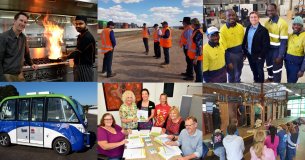 Latest News
Latest News
